第52章 Part the Second (10)
In those the mass of the people met and enacted laws (grammatically speaking) in the first person.Simple democracy was no other than the common hall of the ancients.It signifies the form, as well as the public principle of the government.
As those democracies increased in population, and the territory extended, the simple democratical form became unwieldy and impracticable; and as the system of representation was not known, the consequence was, they either degenerated convulsively into monarchies, or became absorbed into such as then existed.Had the system of representation been then understood, as it now is, there is no reason to believe that those forms of government, now called monarchical or aristocratical, would ever have taken place.It was the want of some method to consolidate the parts of society, after it became too populous, and too extensive for the simple democratical form, and also the lax and solitary condition of shepherds and herdsmen in other parts of the world, that afforded opportunities to those unnatural modes of government to begin.
As it is necessary to clear away the rubbish of errors, into which the subject of government has been thrown, I will proceed to remark on some others.
It has always been the political craft of courtiers and court-governments, to abuse something which they called republicanism;but what republicanism was, or is, they never attempt to explain.let us examine a little into this case.
The only forms of government are the democratical, the aristocratical, the monarchical, and what is now called the representative.
What is called a republic is not any particular form of government.
It is wholly characteristical of the purport, matter or object for which government ought to be instituted, and on which it is to be employed, Res-Publica, the public affairs, or the public good; or, literally translated, the public thing.It is a word of a good original, referring to what ought to be the character and business of government; and in this sense it is naturally opposed to the word monarchy, which has a base original signification.
It means arbitrary power in an individual person; in the exercise of which, himself, and not the res-publica, is the object.
Every government that does not act on the principle of a Republic, or in other words, that does not make the res-publica its whole and sole object, is not a good government.Republican government is no other than government established and conducted for the interest of the public, as well individually as collectively.
It is not necessarily connected with any particular form, but it most naturally associates with the representative form, as being best calculated to secure the end for which a nation is at the expense of supporting it.
Various forms of government have affected to style themselves a republic.
Poland calls itself a republic, which is an hereditary aristocracy, with what is called an elective monarchy.Holland calls itself a republic, which is chiefly aristocratical, with an hereditary stadtholdership.But the government of America, which is wholly on the system of representation, is the only real Republic, in character and in practice, that now exists.Its government has no other object than the public business of the nation, and therefore it is properly a republic; and the Americans have taken care that this, and no other, shall always be the object of their government, by their rejecting everything hereditary, and establishing governments on the system of representation only.Those who have said that a republic is not a form of government calculated for countries of great extent, mistook, in the first place, the business of a government, for a form of government; for the res-publica equally appertains to every extent of territory and population.And, in the second place, if they meant anything with respect to form, it was the simple democratical form, such as was the mode of government in the ancient democracies, in which there was no representation.The case, therefore, is not, that a republic cannot be extensive, but that it cannot be extensive on the simple democratical form; and the question naturally presents itself, What is the best form of government for conducting the Res-Publica, or the Public Business of a nation, after it becomes too extensive and populous for the simple democratical form? It cannot be monarchy, because monarchy is subject to an objection of the same amount to which the simple democratical form was subject.
It is possible that an individual may lay down a system of principles, on which government shall be constitutionally established to any extent of territory.This is no more than an operation of the mind, acting by its own powers.But the practice upon those principles, as applying to the various and numerous circumstances of a nation, its agriculture, manufacture, trade, commerce, etc., etc., a knowledge of a different kind, and which can be had only from the various parts of society.It is an assemblage of practical knowledge, which no individual can possess; and therefore the monarchical form is as much limited, in useful practice, from the incompetency of knowledge, as was the democratical form, from the multiplicity of population.The one degenerates, by extension, into confusion; the other, into ignorance and incapacity, of which all the great monarchies are an evidence.The monarchical form, therefore, could not be a substitute for the democratical, because it has equal inconveniences.
Much less could it when made hereditary.This is the most effectual of all forms to preclude knowledge.Neither could the high democratical mind have voluntarily yielded itself to be governed by children and idiots, and all the motley insignificance of character, which attends such a mere animal system, the disgrace and the reproach of reason and of man.